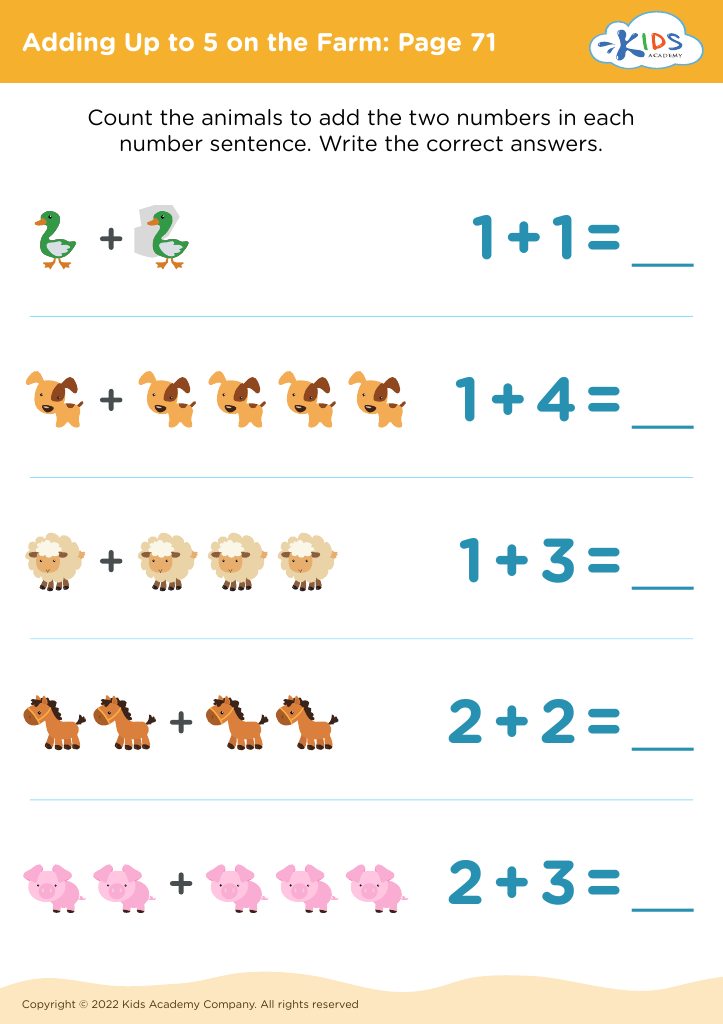Observational skills Math Worksheets for 5-Year-Olds
6 filtered results
-
From - To
Enhance your 5-year-old's mathematical journey with our Observational Skills Math Worksheets. Specially designed to sharpen young minds, these engaging worksheets blend math with fun activities, building crucial observational skills. By encouraging careful attention to details, children enhance their ability to recognize patterns, shapes, and colors — fundamental for early math learning. Variety-packed exercises ensure kids remain captivated while developing cognitive and analytical abilities. Perfect for at-home learning or classroom use, these worksheets guarantee a strong foundation in math. Discover the joy of learning with our expertly crafted resources at Kids Academy, and watch your child’s math skills flourish.
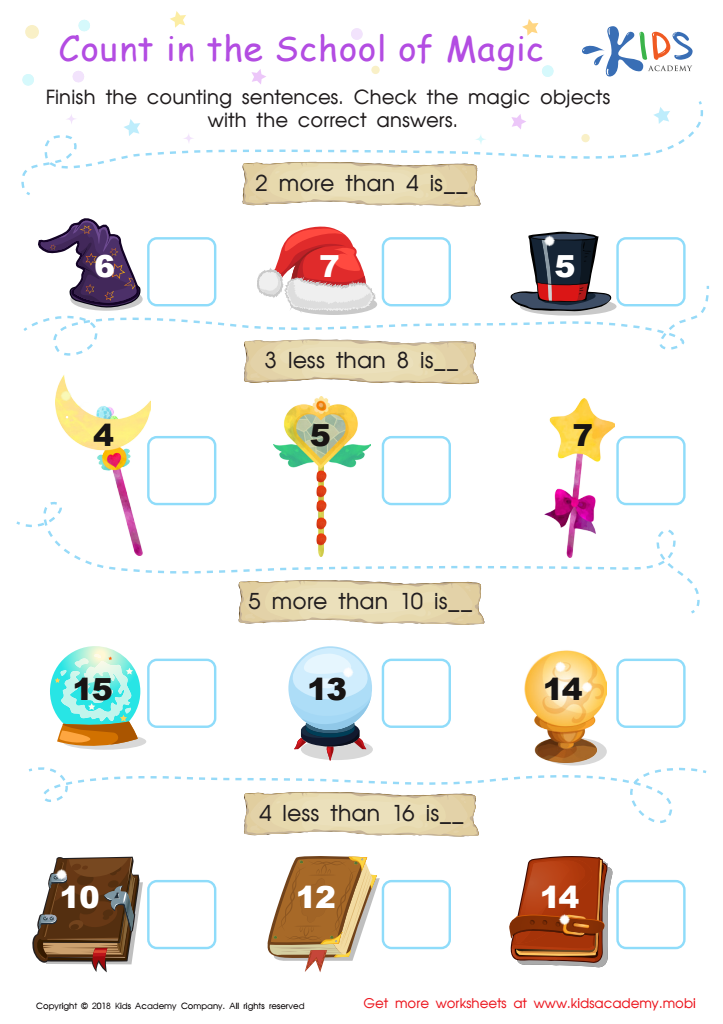

Count in the School of Magic Worksheet
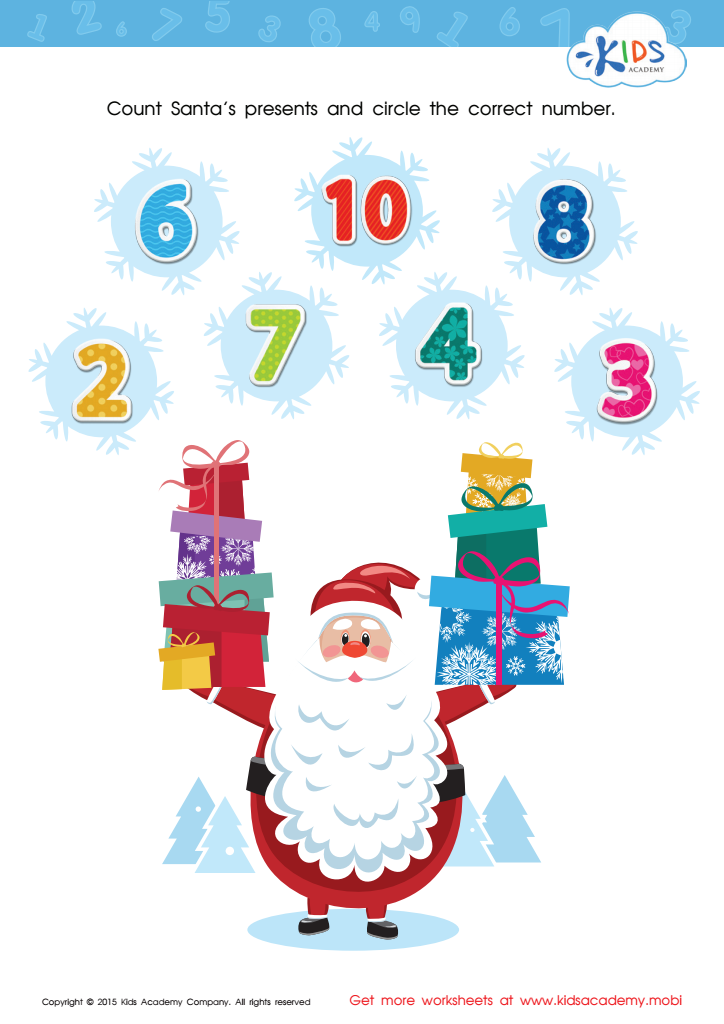

Count Santa's Presents Worksheet
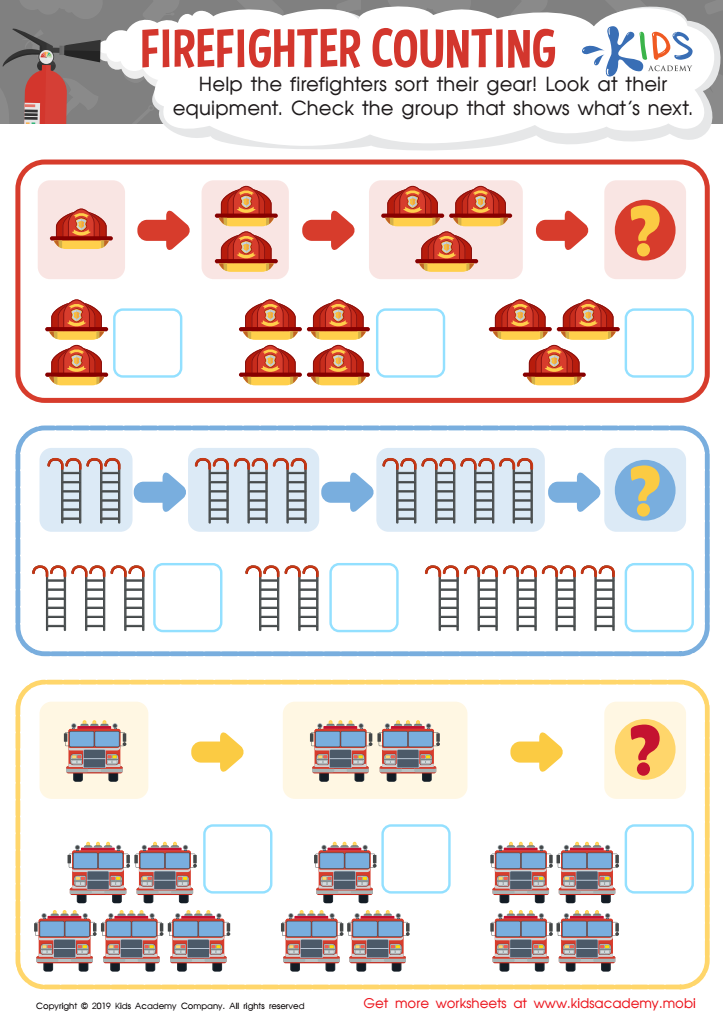

Firefighter Counting Worksheet
Observational skills in math for 5-year-olds are foundational for their cognitive and academic development, making them an important focus for both parents and teachers. At this age, children are naturally curious and keen observers who are forming patterns, categorizing items, and beginning to comprehend their environments. These observational skills are crucial building blocks for later math skills.
Firstly, observational skills encourage children to notice patterns and relationships, which are critical components of mathematical thinking. Recognizing sequences, sorting by different attributes (such as color, size, or shape), and identifying differences and similarities help foster a structured approach to problem solving that transcends beyond math to other academic subjects.
Secondly, these skills enhance a child's ability to focus and pay attention to details. This newfound attention to detail and improved focus not only helps in understanding and solving math problems but also supports general learning by improving listening skills and the ability to follow instructions.
Additionally, fostering observational skills in mathematical contexts can also promote teamwork and communication as children discuss and compare their findings with others, helping to build social and linguistic skills simultaneously.
Therefore, by nurturing observational skills at this critical age, parents and teachers provide a robust foundation for academic success and everyday problem-solving abilities, setting children on a path to becoming inquisitive, thoughtful learners.
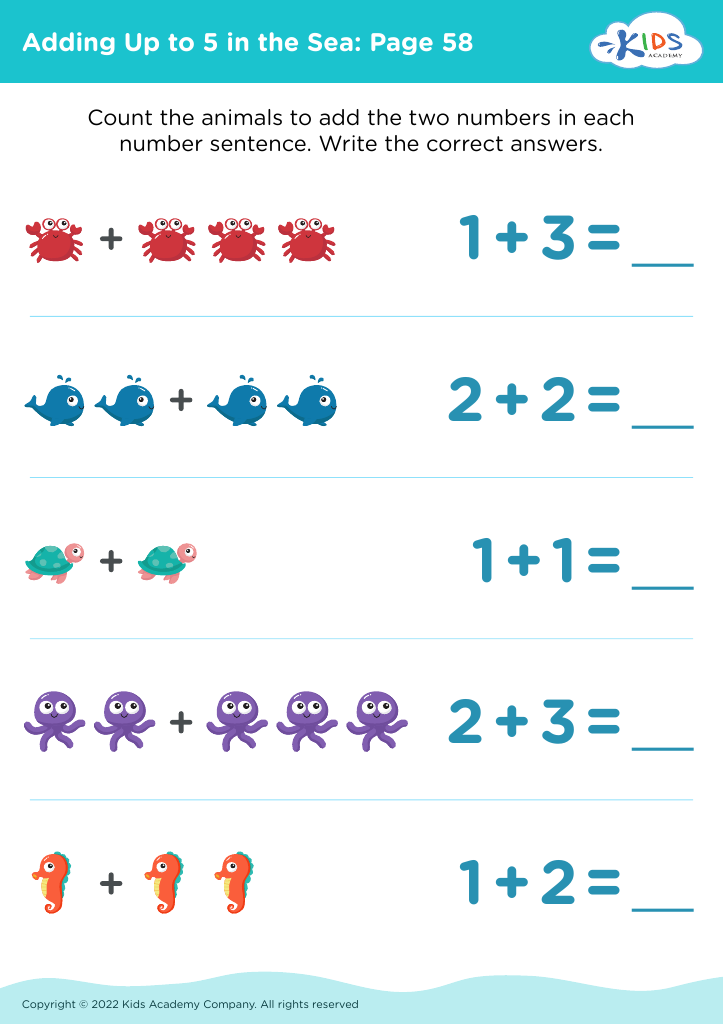

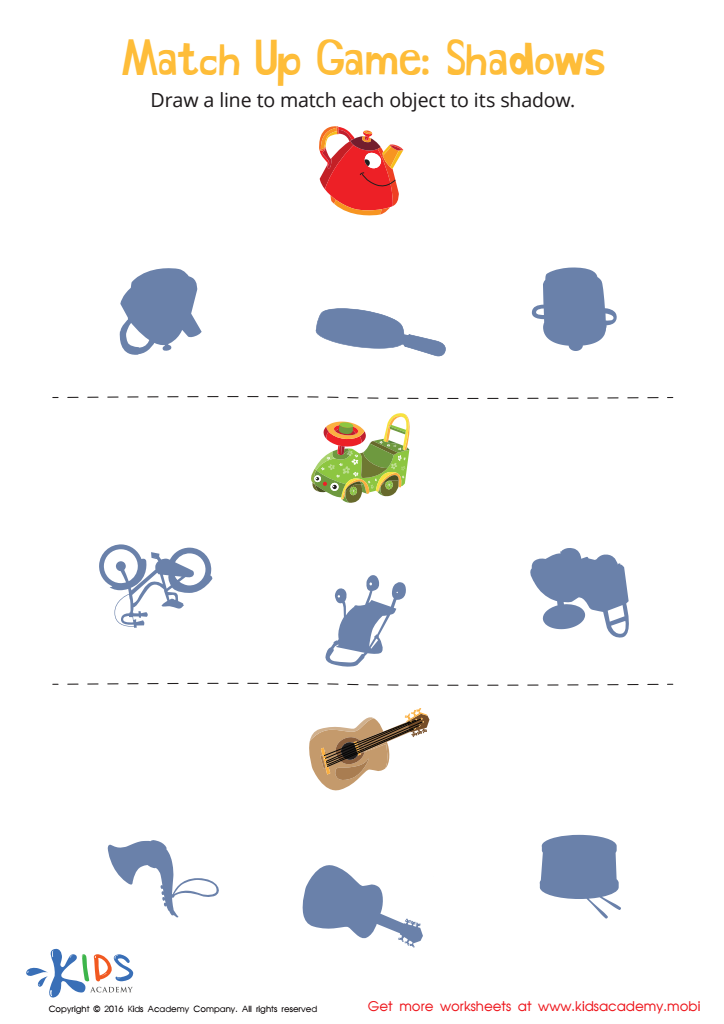
 Assign to My Students
Assign to My Students
